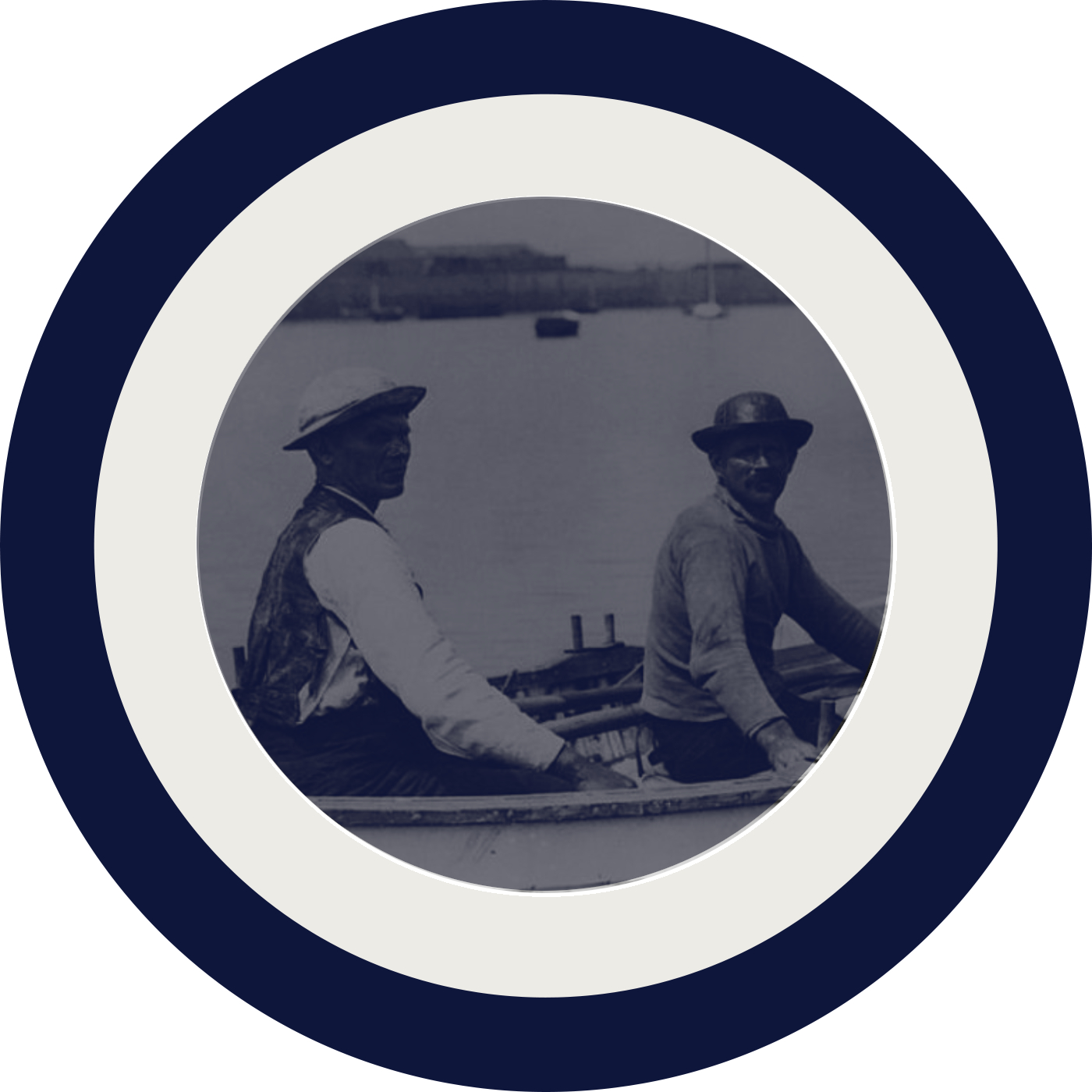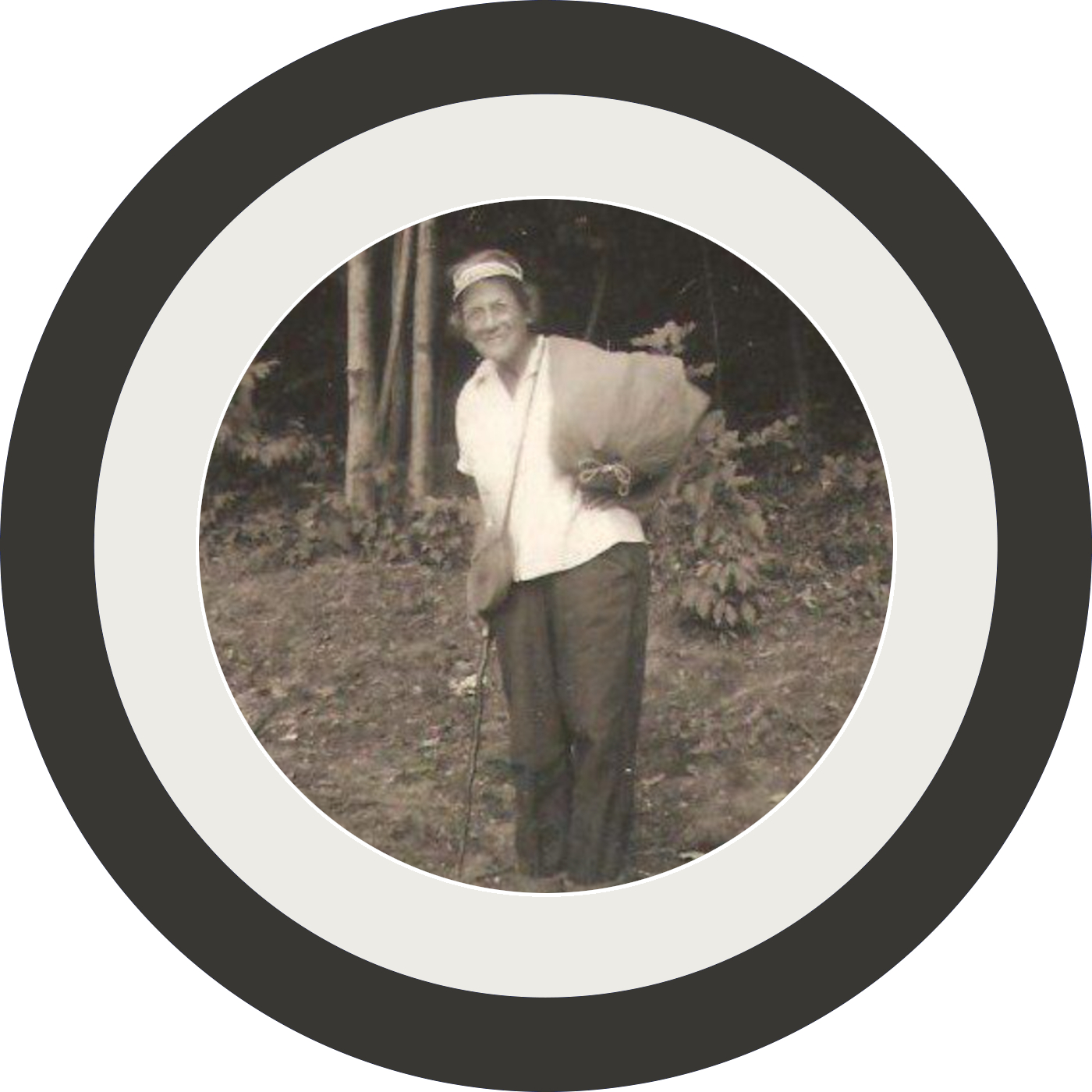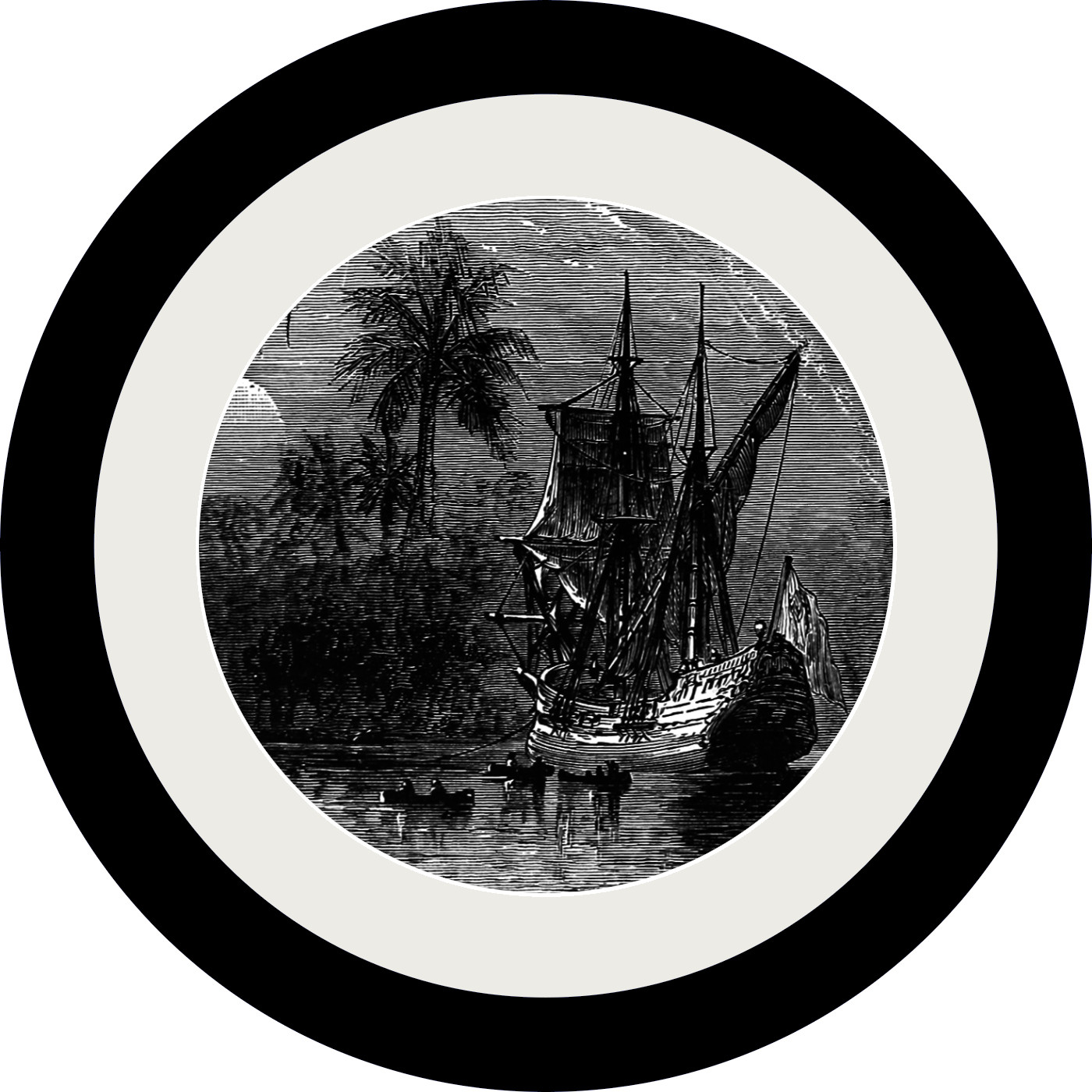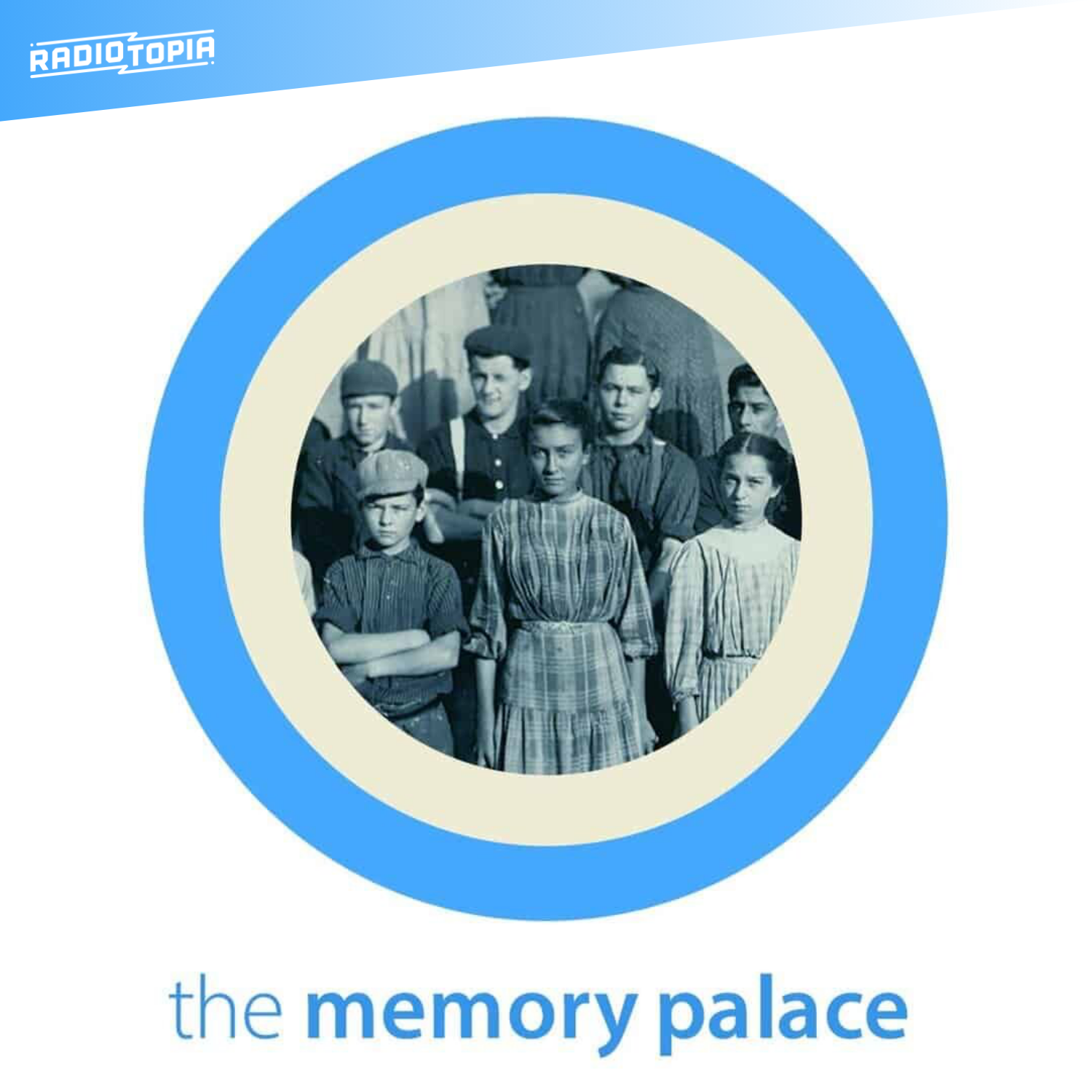Nate's episode of the year 2022: In France or in Heaven
The Memory Palace is a proud member of Radiotopia from PRX.
A note on notes: We’d much rather you just went into each episode of The Memory Palace cold. And just let the story take you where it well. So, we don’t suggest looking into the show notes first.
Music
Blithe Field does RD 1
O Venezia, Venuga, Venusia by Nino Rota
Carthage by Hayden Perdido
Nice Breeze, Isn’t It? from Simon Rackham
Mystere by amiina
Blithe Field also does Racing Backward
as well as Prelude
Learn about your ad choices: dovetail.prx.org/ad-choices
Press play and read along
Transcript
Speaker 1 Support for this podcast and the following message come from Sutter Health.
Speaker 1 Cancer diagnosis can be scary, which is why Sutter's compassionate team of oncologists, surgeons, and nurses work together as one dedicated team, providing personalized care for every patient.
Speaker 1 It's a whole cancer team on your team. Learn more at Sutterhealth.org.
Speaker 2 This episode of The Memory Palace is brought to you by Progressive Insurance. Fiscally responsible, financial geniuses, geniuses, monetary magicians.
Speaker 2 These are things people say about drivers who switch their car insurance to Progressive and save hundreds. Visit progressive.com to see if you could save.
Speaker 2 Progressive Casualty Insurance Company and affiliates, potential savings will vary, not available in all states or situations.
Speaker 2 Every year around this time, I re-release my favorite episode of the year.
Speaker 2
And this time, I found myself having a little trouble picking. It was like I kept wanting to reject what seemed like the right choice.
And this wasn't really on the merits.
Speaker 2
I mean, I'm never entirely sure what makes one episode better than another. Not really.
They kind of seem to resonate or not with each listener.
Speaker 2 One of the best things about doing the show is that people's favorites seem to be highly idiosyncratic.
Speaker 2 Often the most fun emails I get are the ones that say, I love that one episode, and that one episode is
Speaker 2 one maybe I barely remember, or at the very least, it's not one that people ever really say is their favorite. And I think this is sort of true for me too.
Speaker 2 So I was reluctant to pick this one because it is similar to others in theme and subject matter that not only have I done before, I have picked as favorite episodes before.
Speaker 2 It seems that I have a thing about people working hard to travel over bodies of water.
Speaker 2 That is my highly idiosyncratic thing, turns out.
Speaker 2
And I've sort of thought about why over the years. And I think it has something to do with the act of writing.
Like, I think it's sort of a metaphor for the process.
Speaker 2 Particularly the process of making the show. Like, you set out with a destination in mind,
Speaker 2
but your idea of it is vague. Like, it is a place that you've heard of maybe, but it lives mostly in your imagination.
And you have these hopes for it.
Speaker 2 You know, you want it to be beautiful when you get there. But in order to get there,
Speaker 2 you have to get there. So,
Speaker 2
you have to row. And you've got to keep rowing.
And sometimes it is miserable,
Speaker 2
and sometimes it is transcendent. But either way, you have to keep pulling on the oars, or you have to keep swimming, or whatever the story is about.
Whatever metaphor you want to use.
Speaker 2 But if you do, you get to see what it's like on the other side. And...
Speaker 2 Yeah.
Speaker 2 The story is about a number of things, but that's partially what it's about, at at least to me. So thank you for taking these ridiculous journeys with me this year.
Speaker 2 And I will talk to you next year, and we will see where we wind up together.
Speaker 2 This is the Memory Palace. I'm Nate Temeo.
Speaker 2
We have logs kept for each day. Notes on the weather and wind, their progress and position.
Details details about landmarks and vessels and whales, and incidents that were by definition notable.
Speaker 2 Written in grease pencil in the summer of 1896 by George Harbo, 32 years old, then of New Jersey, though born and raised in Vestfold, Norway.
Speaker 2 We have articles from several daily newspapers from the New York, New Jersey area and a weekly men's magazine called the Police Gazette. that cover the story of Mr.
Speaker 2 Harbo and the then 26-year-old Frank Samuelson, also a Norwegian immigrant.
Speaker 2 They were both both self-employed as oystermen working a small stretch of the New Jersey coast, work that had not previously, as far as I have been able to ascertain, drawn the attention of the press.
Speaker 2 But reporters were drawn to the Bowery on the southern tip of Manhattan on the afternoon of June 6, 1896, along with approximately 2,000 people.
Speaker 2 He watched as the two men stepped down from a dock and into a white rowboat.
Speaker 2 A modest vessel, 18 feet long, 5 feet wide, seats for two men, locks for four oars, and outfitted with sixty gallons of potable water, portable stove and fuel to fire it, signal flares, and enough eggs, preserved meat, hard biscuits, and coffee to last those two men two months.
Speaker 2
Though many in the crowd gathered at the water's edge were skeptical that the men would need that much. They didn't doubt their appetites.
They doubted their sanity.
Speaker 2 The New York Herald put it this way Someone ought to see that this idiocy is stopped.
Speaker 2 But no one did stop the two men, as they settled onto their benches, backs to the open water, and took the wooden oars into their gloveless hands and began to pull.
Speaker 2 The faces in the crowds getting smaller as each stroke brought Harbo and Samuelson farther away, but not too far yet for one of the newspapermen at the edge of the dock, notebook in hand, to hear one of the men call back to the waving crowd.
Speaker 2 We'll see you in France or we'll see you in heaven as they set out to row across the Atlantic.
Speaker 2 And we have maps that tell us that heaven might have been a safer bet. It is 3,200 miles from Lower Manhattan to Le Havre, the men's intended destination.
Speaker 2 We may have memories ourselves of rowing across a lake or pond in a park, the feel of oars in our palms and our fingers, the feel of the work in our wrists and our shoulders.
Speaker 2 Then we only have to think of waves and sunburn and wet socks and extrapolate to get a bit of a sense of what they were facing.
Speaker 2 We only have to think of Kate Winslet, blue-lipped and ashen on a bobbing broken door, Leo slipping down into the black, to know how bad an Atlantic crossing can go, on even the grandest of vessels.
Speaker 2 The logs tell us that their boat was out past the sight of land by the morning of Monday, June 8th.
Speaker 2 Conditions were calm but foggy, visibility limited, though they had little to see but the sea.
Speaker 2 One of the men, Harbo or Samuelson, I'm not sure which, just saw the back of the boat, and his fists around the rough oars, coming in and out of his field of vision, in and out, the ocean rolling, the world tilting and tipping, pitching and dipping hither, yon.
Speaker 2 The other man staring at that man's back, the muscles in his shoulders moving under wetting wool.
Speaker 2 Straight for four hours, the first shift of that day, eight till noon, and then a pause for some food and some water. A stretch of the arms, a twist at the hips for the lower back, what have you.
Speaker 2 And then back to the oars. The newspapers tell us that the plan was to row 18 hours each day.
Speaker 2 18 hours.
Speaker 2 The rest would be for rest, they would take turns sleeping under a canvas blanket, for any maintenance or repairs, and brief meals, made briefer by the fact that they quickly discovered their stove barely worked with all the wind and water.
Speaker 2 So they drank their coffee cold and ate their eggs raw.
Speaker 2 And it would go that way, if all went according to plan.
Speaker 2 For two months.
Speaker 2 Two men.
Speaker 2 Four oars. 3,200 miles to cover.
Speaker 2 Why they would want to do this is the subject of some confusion.
Speaker 2 Many of the details, particularly the most exciting parts, like when on their fourth night at sea the two men were tormented by a hammerhead shark, a slick shadow circling their boat in the darkness, bumping its keel hoping to make them a meal, came from the weekly, the Police Gazette.
Speaker 2 Its owner, a flashy businessman named Richard Fox, had worked out a deal with the two oystermen.
Speaker 2 His was a men's magazine with sports stories, business stories, adventure stories, tales of manly men engaged in manly pursuits. So two average Joes roaming across the ocean,
Speaker 2 that qualified. And it was the perfect story for a weekly, with a two-month journey that was eight built-in serialized stories.
Speaker 2 Plus some pre-game, pre-journey hype articles, and post-adventure coverage.
Speaker 2 They could maybe even wring some good Where Are They Now stories out of this, depending on where they wound up whenever, and whether the world had moved on to bigger things than two men in a small boat on the big ocean.
Speaker 2 And if they didn't make it,
Speaker 2 readers loved a maritime tragedy.
Speaker 2 In exchange for this exclusive relationship, Fox built them a boat, called it the Fox, bought them their biscuits.
Speaker 2 Later, he would say that he had issued a challenge, $10,000 to any duo who could do the impossible and row across the mighty Atlantic.
Speaker 2 And these two men were the only ones brave enough or foolhardy enough you would have to buy the police gazette each week to find out which they turned out to be.
Speaker 2
But it seems Fox was lying about the prize money. Not to them, but to the public.
He just wanted to make himself look rich, make his paper seem cool. But earlier articles cited the real reason.
Speaker 2 It would make them famous. It was 1896, and the penny papers were minting celebrities out of ordinary people all the time.
Speaker 2 Get wrapped up in a scandal, scale some heretofore unscalable height, invent some new, exciting something or other, get trapped in a well, get rescued from that well.
Speaker 2 People were beginning to monetize their fame. That was a new something or other then.
Speaker 2 You could sell your story to the Police Gazette, sell your famous smile to a toothpaste company, tell your story yourself on a vaudeville stage.
Speaker 2 And people would want to hear this story.
Speaker 2
They knew it. the two men.
No one had rode across the ocean before.
Speaker 2 It was a crazy proposition, but they thought they could do it. And they wanted to try.
Speaker 2 This is not the police gazette.
Speaker 2
I do not need to lead you toward a cliffhanger to make sure you buy another issue next week. And I could leave you in suspense a little longer.
Spin an adventure story out of a three-day storm.
Speaker 2
The middle of the Atlantic, after a month at the oars. Their clothes soaked and rank and heavy.
Their bodies sore, their heads a fog with fatigue and monotony, just unimaginable.
Speaker 2 And now all energy, set on keeping from sinking, bailing out the boat, the rain, the broken wave, three days in the gray of day and the dark of night, thrust up and thrown down and thrust up and thrown down the boat, clinging to the boards, the men.
Speaker 2 And then one wave, towering blackly against the starlit sky, shutting off the sharply marked horizon, creaming at the apex, rushing with the silent speed of an express, the paper tells us, flipping the boat, like the fates flipping a penny, and two small men in the great big sea, lost save for 20 feet of rope that tethered each to the boat, looped through belts of reindeer hide from Norway from their homes, and they pulled hand over hand, alone, back to the boat, and flipped the fox again, and huddled together and hoped they saw the morning.
Speaker 2 But they must have survived,
Speaker 2 Or we wouldn't know about the wave.
Speaker 2 And they made it to Europe, I am happy to tell you. They deserve no less.
Speaker 2 And they put the log in a safe, dry place, and talked to reporters.
Speaker 2 And so we have the story of George Harbow and Frank Samuelson, the first two men, as far as can be known, to row from North America to Europe.
Speaker 2
It was a feat that wouldn't be replicated for 70 years. Another pair did it in 1966.
And then in 1969,
Speaker 2 one man, rowing solo, made it. But that same summer, men walked on the moon.
Speaker 2 And his feet didn't quite seize the public's attention.
Speaker 2 But Harbo and Samuelson did.
Speaker 2 Thousands of people crowded the shore in France when they finally climbed out of the boat. Their legs buckling, their hands raw, painful as people grabbed them to shake, wincing with every backpat.
Speaker 2 every ecstatic embrace. They were celebrated on both sides of the Atlantic and slid right into the life that it seems they had sought, trading that of the oysterman for that of the showman.
Speaker 2 They toured about, first the music halls of Europe, telling their story, toting their boat along with them, then in the dime museums back in their adopted home.
Speaker 2 They drew big audiences for a while.
Speaker 2 It didn't last.
Speaker 2 Maybe people just moved on to the next thing.
Speaker 2 As is the way of things.
Speaker 2 Or maybe they just weren't that good at this part of the plan.
Speaker 2 They are different skill sets, the rowing of boats and the telling of stories.
Speaker 2 There are no accounts of the content of their performances,
Speaker 2 though it is not difficult to guess at the set list.
Speaker 2 The newspaper stories and retrospective retellings of their crossing in the summer of 1896 all play the same hits.
Speaker 2 There is the shark and the storm, the capsizing in its aftermath. They lost a lot of the food when the fox flipped and had to strictly ration it out.
Speaker 2 They had half an ocean still to cross.
Speaker 2 They encountered several ships during the journey, so they likely told about the first one, not far off Newfoundland, and how its captain assumed they were off course and offered them a lift toward land, and they shouted that they were fine, that they were on their way to Europe.
Speaker 2 And that probably got a laugh.
Speaker 2 And then how, with each subsequent sail, with each baffled captain, they decided it was okay to come aboard.
Speaker 2 To get a meal, a cup of tea,
Speaker 2 rest for a bit,
Speaker 2 before starting out again from the same spot.
Speaker 2 And they may have fielded questions.
Speaker 2 Weren't you scared? Didn't it hurt? Weren't you bored? Did you miss your families?
Speaker 2 All the sorts of questions that boil down to just the eternal one.
Speaker 2 What is it like to be someone else?
Speaker 2 And I have my own questions.
Speaker 2 How was the tea?
Speaker 2 After you'd climbed up out of the fox,
Speaker 2 up some swinging ladder to a proper ship,
Speaker 2 with dry blankets below deck, how did that tea feel on your tongue?
Speaker 2 In your belly?
Speaker 2 How did your rowboat look down below?
Speaker 2 Waiting in the water.
Speaker 2 Was there a moment when you looked at the other man, your partner in all this, there on that ship, warm from that tea,
Speaker 2 and wondered if you saw weakness?
Speaker 2 Or maybe worried he might see it in you?
Speaker 2 What did it feel like to get back in the rowboat?
Speaker 2 To start pulling again?
Speaker 2 Does the pain ever go away?
Speaker 2 Does your mind go places there on the water in the middle of the Atlantic on your 40th day of rowing? Your 50th?
Speaker 2 The world in constant motion? Each hour the same but not the same. Each wave the same but never the same?
Speaker 2 Does it go places ours have never been?
Speaker 2 What is it like there?
Speaker 2 When you were in New Jersey, back before all this,
Speaker 2 In the same old waters, protected harbors, calm inlets,
Speaker 2 smell of marsh grass in the air, sounds from the shore.
Speaker 2 What did you expect from the sea? From France?
Speaker 2 From your life after?
Speaker 2 How did that change as you rode and you rode?
Speaker 2 As the sun burned your skin, as the wood of the oars ate up your hands,
Speaker 2 with weeks and weeks still to go?
Speaker 2 What was the conversation
Speaker 2 before this, back on land?
Speaker 2 Were you committed to this thing?
Speaker 2 To each other?
Speaker 2 When the idea took hold and went from a thing that someone might do to a thing you thought maybe you could do?
Speaker 2 How did it feel when you realized it was really happening?
Speaker 2 That you were really going to do this, that there's no turning back now.
Speaker 2 And was there a night after you'd made it,
Speaker 2 when you realized the world didn't seem to be moving when you closed your eyes anymore?
Speaker 2 How long did it take for you to stop noticing how good it felt just to be in a warm bed?
Speaker 2 They both went back to their old work.
Speaker 2 George Harbo in New York Harbor,
Speaker 2 though not for much longer. He died young about 15 years later of pneumonia.
Speaker 2 Had a big family that he left behind.
Speaker 2 Frank Samuelson, articles tell us, was homesick and took his ship back to Norway.
Speaker 2 He died in 1946, an old man,
Speaker 2 after a long career digging clams.
Speaker 2 One summer, when he was young,
Speaker 2 he and George rode across the ocean.
Speaker 2 This episode of The Memory Palace was written and produced by me, Nate DeMayo, in May of 22.
Speaker 2 The show gets research assistance from Eliza McGraw. It is a proud member of Radiotopia, a collection of listener-supported, independent, creator-owned, and operated podcasts from PRX,
Speaker 2 a not-for-profit, mission-driven public media company.
Speaker 2 And if you ever want to support the show, if you ever want to join all the people who help keep this operation afloat, who keep the lights aglow here at the Memory Palace, you can make a donation.
Speaker 2
It is tax-deductible if you live in the United States. Radiotopia is different.
It thrives because of this unique mix, this balance of sponsorships and direct listener support.
Speaker 2 In a business that has become just like every other one, big corporate players backed by venture capital and giant entertainment conglomerates fighting over their pieces of the pie, Radiotopia and PRX are different.
Speaker 2 They are driven to support creators and operations that value their independence, that value their ability to chart their own course and make their own creative and business decisions.
Speaker 2 And that is different. And it makes all the difference to me and to this show.
Speaker 2 If you like the show because you think that it sounds different, because it travels in its own peculiar peculiar lane, seems to chase things beyond raw numbers and I don't know, cash.
Speaker 2 This show gets to be that way. This show is different because Radiotopia and PRX are.
Speaker 2 They helped me do this.
Speaker 2 And you, listening now, can be a part of that with us, with your donation. Go to radiotopia.fm slash donate
Speaker 2 and kick in what you can.
Speaker 2
Thank you for considering it. Thank you always for listening.
If you ever want to drop me a line, you can do so at nate at thememorypalace.org. I love, love, sincerely, hearing from listeners.
Speaker 2 And you can always follow me on Twitter and Facebook at the Memory Palace. And I will talk to you again.
Speaker 2 Radiotopia
Speaker 2 from R X





